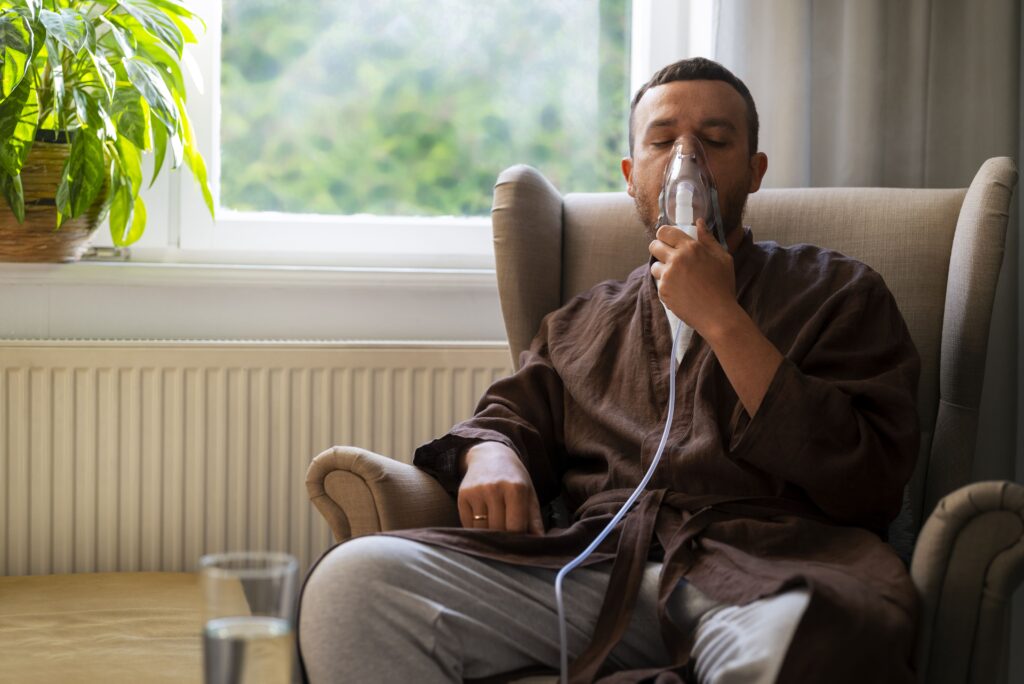To avoid airway collapse or blockage, one of the medical devices that is significantly used is known as a CPAP machine. It delivers a steady stream of pressurized air that plays a crucial role in managing sleep apnea symptoms such as breathing interruptions, gasping, or snoring.
However, to receive proper treatment, you must be careful about your CPAP machine settings and ensure that your air pressure is set at the right level, tailored according to your medical needs. Both low and high pressure are dangerous for the user and can impact their health and the machine’s effectiveness.
In this article, we will understand why it is crucial to use the right CPAP machine setting and what the symptoms and signs are that CPAP pressure is too high. Also, we will discuss how it makes it difficult for the patient to use this machine regularly. This comprehensive guideline will help you recognize the signs early and address them properly. Resulting in the effectiveness of the CPAP therapy and adherence.

Why is it crucial to set the exact CPAP machine settings?
You need to be careful about using an appropriate setting, as a CPAP machine is not capable of setting them according to your current breathing needs. While using this device, you need to understand that there is no right or wrong CPAP pressure setting. The appropriate machine setting is what is capable of assisting you in managing and treating sleep apnea. If your overall health is improving and you are getting a proper night’s sleep, then it is a sign that you are using the CPAP machine properly. If you are new to CPAP therapy, you need to understand that finding your ideal CPAP pressure might take some time, but eventually it will pay off by making your therapy safe and effective. Additionally, it will also help you prevent side effects.
What is CPAP pressure?
In easy words, it is a constant stream of air pressure delivered by a CPAP machine. It plays a significant role in preventing airway collapse and keeping the airway open during sleep, while the patient sleeps peacefully. It is measured in centimeters of water pressure (cmH₂O).
What happens if CPAP pressure is too high?
High CPAP pressure can cause discomfort such as difficulty exhaling, dry mouth and nose, air leaks, bloating, and eye irritation, which can reduce therapy effectiveness and disrupt sleep.
How to tell if CPAP pressure is too high?
If you experience discomfort like breathlessness, dry throat or mouth, or mask leaks, then it can indicate that the pressure is set too high and needs adjustment by a healthcare provider.
Signs CPAP Pressure is too High.
Here are the most common signs your CPAP pressure may be set too high:
Difficulty Exhaling Against the Airflow
The easiest way to indicate that your CPAP setting needs to be adjusted is if you are finding it difficult to breathe out against the pressure. It happens mostly when the machine is delivering more air than you require according to your medical condition.
Frequent Air Leaks
High pressure also leads to breaking CPAP mask seals. This situation can be frustrating, as it causes noisy or uncomfortable air leaks, impacting both your sleep and health.
Morning Headaches
CPAP pressure often leads to morning headaches. Higher pressure is capable of disrupting your normal breathing rhythm, leading to poor-quality sleep and headaches.
Dryness in Nose, Mouth, or Throat
If you are noticing that you are struggling with your mouth and throat, especially the severe one, after using the CPAP machine regularly. Even after using a humidifier, there are no signs that you are getting rid of this issue. Then it can be a major sign that you are dealing with too much pressure forcing air through your airways.
Aerophagia
Another sign is that if you are swallowing air due to excessive pressure, then you might have bloated, gassy, or stomach discomfort. This condition is called aerophagia. If you are dealing with this situation, then it is a sign that your settings need adjustment.
Increased Mask Discomfort
If you are dealing with irritation around the nose or mouth, then it is a common sign that you are using higher pressure rather than the ideal one, which is pushing more air into the mask. If these issues remain prevalent, then they can increase the chance of skin sores and irritation, especially around the mouth or nose area.
Disturbed Sleep or Insomnia
A common sign that the airflow is uncomfortably strong is that you are waking up more frequently during the night, feeling restless, especially when you are using a CPAP machine. Moreover, if you are having trouble falling asleep because of insomnia, then you must consult your doctor.
What to Do if You Suspect Your CPAP Pressure Is Too High?
- When it comes to adjusting the pressure, you must prefer that changes be made under the guidance of a sleep specialist or respiratory therapist.
- Keep track of your symptoms.
- Check if your CPAP equipment is working properly.
- Ask about pressure relief features if exhaling is difficult.
FAQs(Frequently Asked Question)
A CPAP pressure chart visually displays the range and variations of pressure settings on a CPAP machine. It gives the user an idea about how pressure is adjusted.
The average CPAP pressure for treating obstructive sleep apnea typically ranges from 8 to 10 cm H₂O
A CPAP pressure calculator uses variables like BMI and oxygen levels to estimate the optimal CPAP pressure setting.
Common signs include difficulty exhaling, dry mouth and nose, air leaks around the mask, bloating, and irritated eyes
Side effects include persistent snoring, gasping for air, daytime sleepiness, morning headaches, and potential health risks like high blood pressure.
Some of the common signs that can indicate that your CPAP pressure is too high are finding it difficult to exhale against the airflow, mask leaks, and dry nasal passages. Also, if you are dealing with dry eyes or bloating issues, then it is also a sign that you need to consult your doctor regarding your CPAP pressure being too high.
Summary
If you want to achieve optimal comfort and treatment, then your CPAP pressure needs to be carefully tailored according to your medical condition. Too much pressure can lead to side effects that will make it difficult for you to do therapy. If you notice any of the signs that are linked with the CPAP pressure, then you must talk to your healthcare provider. Small adjustments can make a big difference in making your CPAP therapy far more comfortable and effective.
